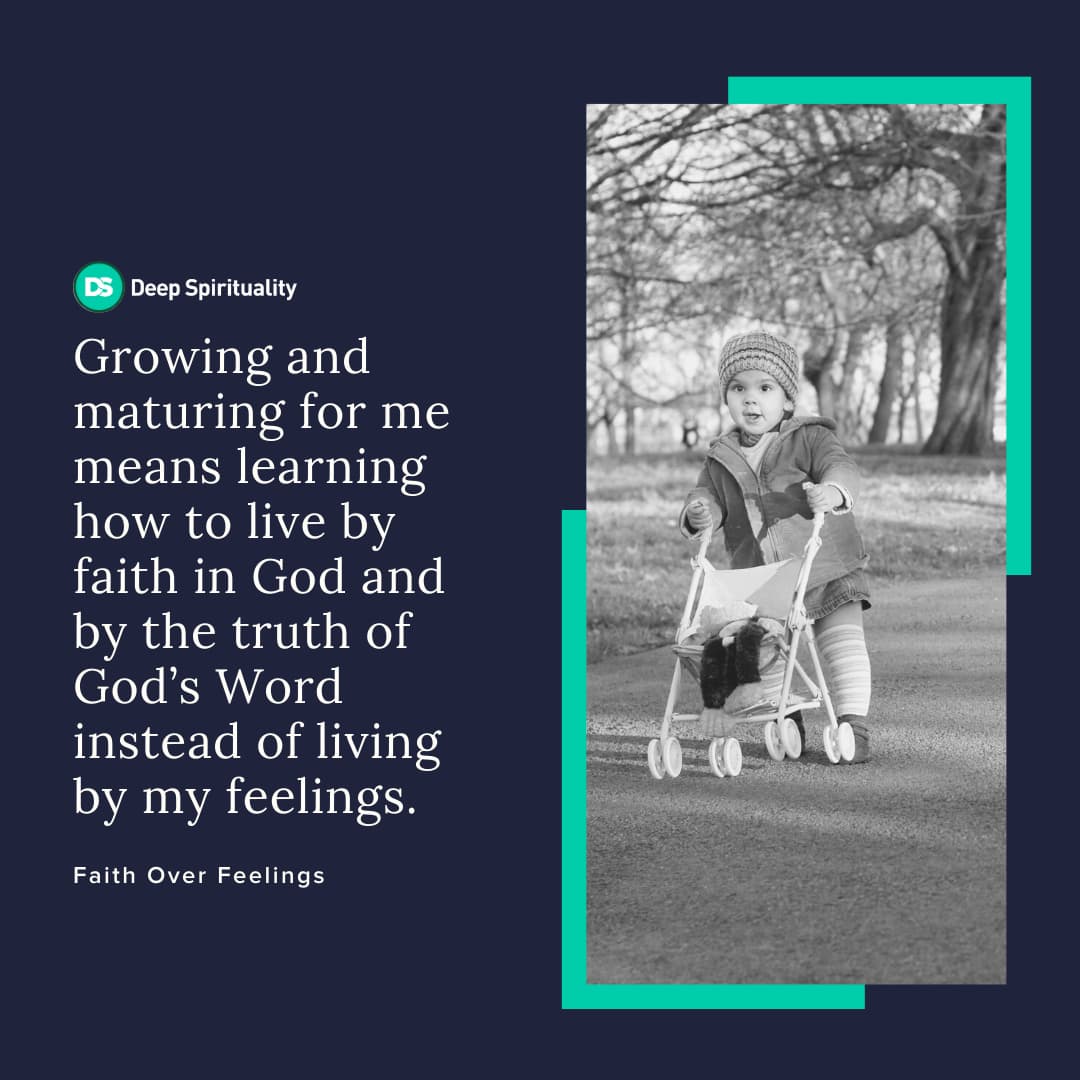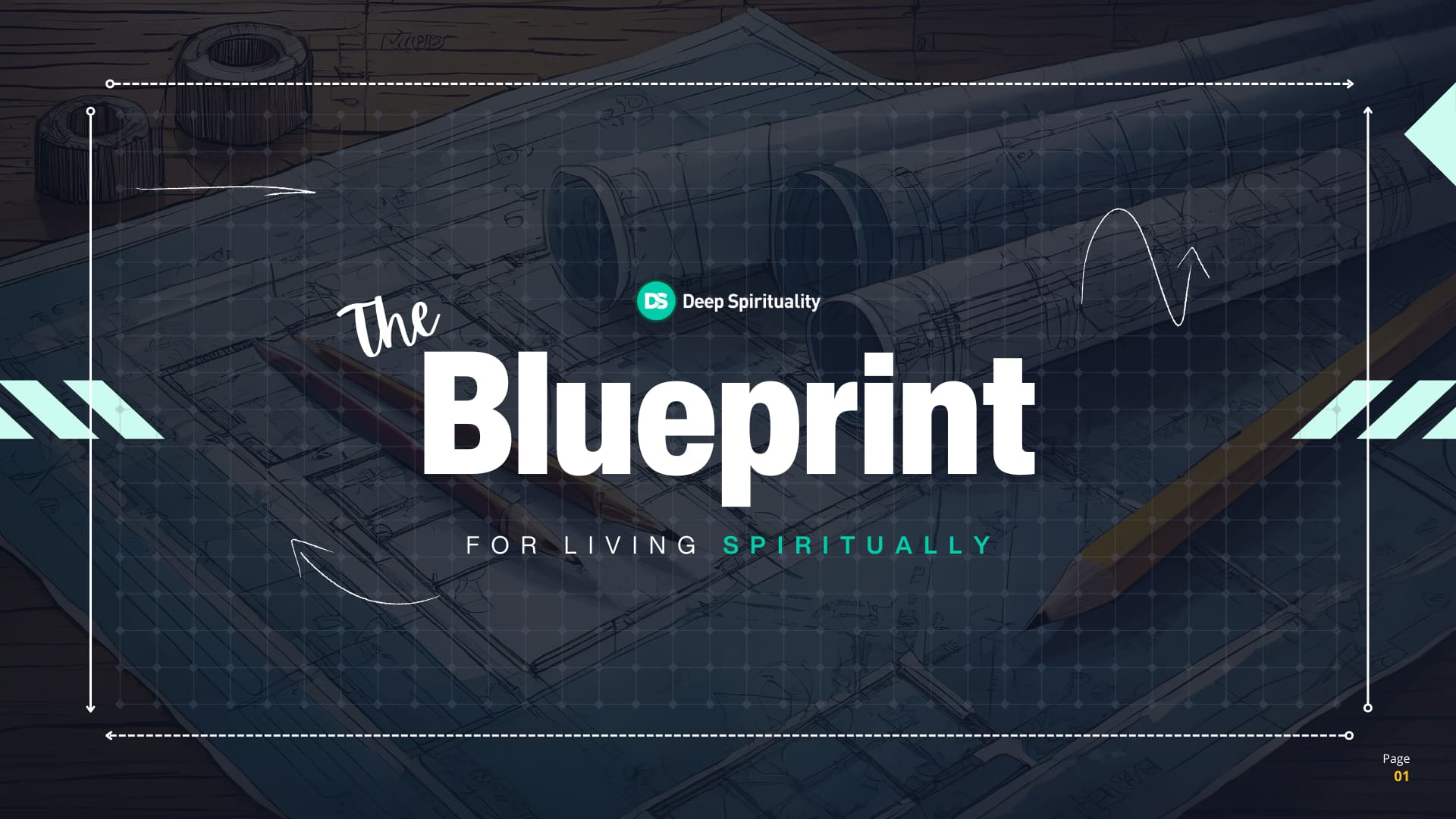Recently, my two-year-old decided she wanted to take her doll on a walk around the neighborhood.
We set out on our way, strolling Dolly down the sidewalk in her little toy stroller. But a few minutes into our walk, the stroller wheel jammed up and got stuck.
After a few attempts to free the stroller, my toddler got frustrated. She flopped onto the ground, spread her arms wide, and lay prostrate in the middle of the sidewalk, staring up at the sky in despair.
Of course I snuck a picture of this comically over-dramatic moment, smiling to myself about how intense and overblown toddler emotions can be.

But suddenly a strange feeling of familiarity washed over me. Just a couple nights before, in my frustration over a project I couldn’t figure out for my job, I had flopped onto the couch, stared up at the ceiling, and vented out all my complaints to my husband in my own overly dramatic moment.
As I looked at my little one sprawled out on the ground, I realized that I could see a bit of myself lying on that sidewalk too. And that really wasn’t a pleasant feeling. What’s age-appropriate for a two-year-old is no longer appropriate for an adult.
Perhaps that’s why the Bible calls us to “no longer be like children,” tossed around by everything that comes our way:
Then we will no longer be like children, tossed around here and there upon ocean waves, picked up by every gust of religious teaching spoken by liars or swindlers or deceivers. [15] Instead, by truth spoken in love, we are to grow in every way into Him—the Anointed One, the head. He joins and holds together the whole body with its ligaments providing the support needed so each part works to its proper design to form a healthy, growing, and mature body that builds itself up in love.
Ephesians 4:14-16 Voice
My emotions are strong, and I often feel “tossed around here and there” and “picked up by every gust” that comes my way.
Growing and maturing for me means learning how to live by faith in God and by the truth of God’s Word instead of living by my feelings, like the psalmist in Psalm 42 describes:
Why am I so overwrought? Why am I so disturbed? Why can’t I just hope in God? Despite all my emotions, I will believe and praise the One who saves me and is my life.
Psalm 42:5 Voice
How do I get to a place where I’m no longer tossed around by my emotions, and I can say confidently that “Despite all my emotions, I will believe…”?
In this study, we’ll learn together how to live by faith over feelings by looking at four ways we can trust God more than our emotions.
Have feelings replaced your faith?
The first step for me in choosing faith over feelings is being honest with myself that feelings have replaced my faith.
Hopefully it goes without saying that feelings are not inherently bad. Emotions enrich our lives and are absolutely necessary to building a close relationship with God and with people around us.
Without emotion, we would never be able to experience compassion and empathy, or indignation and inspiration. Even emotions we perceive as negative, like shame and regret, can bring us closer to other people by prompting us to seek reconciliation when we’ve done something wrong.
But emotions aren’t meant to replace our relationship with God:
In the end they will be destroyed. Their own emotions are their god, and they take pride in the shameful things they do. Their minds are set on worldly things.
Philippians 3:19 GW
Have your emotions become your God? That means we can start to worship them, obey them, and rely on them in ways we really shouldn’t.
I grew up with three sisters and felt constantly insecure that I didn’t measure up to them. Instead of learning to talk about my fears and insecurities in a healthy way, I let my fear of rejection drive me. It became my god and I would do anything to appease it.
I never thought of myself as “emotional” because I held all these feelings inside and channeled them into something I felt like I could control.
I threw fits when my sisters got more accolades than I did. I began to believe that if I wasn’t perfect, I would feel overwhelming shame and rejection. I avoided new or difficult activities or sports so that I wouldn’t have to feel like a failure.
I also avoided deep attachments; I told myself that if I never needed anyone, I wouldn’t have to feel hurt by possible rejection.
I never thought of myself as “emotional” because I held all these feelings inside and channeled them into something I felt like I could control – achievements and ambition.
Only in the last few years have I begun to recognize how much my emotions drive me and actually have a destructive impact on my faith.
Let’s take a look at what happens to our faith when we let our feelings replace it:
You can’t handle difficulty
The seed cast in the gravel—this is the person who hears and instantly responds with enthusiasm. But there is no soil of character, and so when the emotions wear off and some difficulty arrives, there is nothing to show for it.
Matthew 13:20-21 MSG
- Emotions wear off quickly, while genuine faith can endure a lot (Hebrews 11:32-40).
- How easily do you quit when you face something hard?
Your anger controls you
But don’t let the passion of your emotions lead you to sin! Don’t let anger control you or be fuel for revenge, not for even a day.
Ephesians 4:26 TPT
- When you get angry, does it control you? Does it control your thoughts?
- How easily can you calm down and let go of an offense?
You live by what feels good
And that means killing off everything connected with that way of death: sexual promiscuity, impurity, lust, doing whatever you feel like whenever you feel like it, and grabbing whatever attracts your fancy. That’s a life shaped by things and feelings instead of by God. It’s because of this kind of thing that God is about to explode in anger. It wasn’t long ago that you were doing all that stuff and not knowing any better. But you know better now, so make sure it’s all gone for good: bad temper, irritability, meanness, profanity, dirty talk.
Colossians 3:5-8 MSG
- You tend to get into sensual sins when your emotions are controlling you, because you’re living by whatever feels good without regard to how your decisions make God and others feel (and even how they affect your own life in the long run).
- Do you recognize any of these sins in your life?
You cut yourself off from relationships
We have been very open in speaking to you Corinthians. We have a place for you in our hearts. [12] We haven’t cut you off. Your own emotions have cut you off from us. [13] I’m talking to you as I would talk to children. Treat us the same way we’ve treated you. Make a place for us in your hearts too.
2 Corinthians 6:11-13 GW
- If we live by our emotions, we’ll cut off relationships when we feel hurt, embarrassed, ashamed, anxious, or any other negative feelings. Faith, on the other hand, enables us to forgive and speak up about sins when we see them instead of cutting people off (Luke 17:3-5).
- Have you cut yourself off from anyone? Do you have any relationships in which you no longer try to initiate friendship?
How to live by faith over feelings
Okay, now that we’ve recognized some signs that we’re living by our feelings, how do we change?
Below are four ways I am learning to live by faith instead of my emotions.
Don’t stuff – open up
Have faith in Him in all circumstances, dear people. Open up your heart to Him; the True God shelters us in His arms.
Psalm 62:8 Voice
I have strong emotions about a lot of things, but I’ve noticed lately how few of those emotions I actually talk to God about. My prayers do not match the level of emotional intensity I feel inside.
For example, after a conversation with friends recently, I felt a lot of insecurities like, “Did I say too much? Are they annoyed by me? Am I too negative?”
These thoughts were nagging at me, but I had no plans of talking through them with God or opening up my heart to him about it. Instead I was just going to try to push them out of my mind.
I need to train myself to talk to God about my emotions, and I need to do it more than once a day.
And these were just a few of the many feelings that filled my heart that day. In fact, I realized that the percentage of thoughts and feelings I actually pour out to God is very small.
When my emotions feel strong or negative, I often choose to handle them by ignoring or denying that I have them instead of pouring them out to God. And so I never get to let God change my mind or give me faith; I walk around believing my emotions and fears are true.
I’m learning that I need to train myself to talk to God about my emotions, and I need to do it more than once a day (because I have way more feelings than I could squeeze into a morning prayer).
I tell myself things like this to avoid opening up my heart to God:
- That’s not that big of a deal.
- Many people have it worse.
- I know I shouldn’t feel that way.
But these thoughts are actually a nice-sounding way of lying to myself or stuffing my emotions. Even the seemingly minor issues of my life matter to God (Luke 12:6-7 TPT) and he wants me to be honest, not perfect (Luke 18:9-14).
The truth is, I actually do need God’s help working through feelings that might seem embarrassingly small.
Opening up my heart to God is a way I can choose to have faith that he cares about me and can help with the emotions that are gripping me:
GOD met me more than halfway, he freed me from my anxious fears. [5] Look at him; give him your warmest smile. Never hide your feelings from him.
Psalm 34:4-5 MSG
Pause and reflect
- Do you believe God cares about the seemingly inconsequential issues and feelings in your life?
- What are some of the feelings that are most difficult for you to pray about?
- What percentage of the feelings in your heart each day do you pour out to God?
Learn to “Just say no”
For the word of the Eternal is perfect and true; His actions are always faithful and right.
Psalm 33:4 voice
Sometimes, I need to stop in the midst of my strong emotions and “just say no” to myself by remembering that God’s Word is the truth, even if I feel something different.
The human heart has the capacity to lie, as Jeremiah 17 tells us:
The human heart is the most deceitful of all things, and desperately wicked. Who really knows how bad it is?
Jeremiah 17:9 NLT
So while it’s important to tell God our feelings (check out Matthew 12:15-21 in the Message translation), it’s also important to understand they can deceive us; they aren’t designed to be our moral compass.
For example, have you ever felt really stressed about something, only to realize it wasn’t as bad as you thought?
Your feelings still matter to God, and he wants to hear them and help you work through them and manage your emotions.
Saying “no” to strong emotions doesn’t mean lying about or hiding your feelings, it just means you decide you will believe and live by God’s Word instead.
Pause and reflect
- What are some of the emotions you feel most often in the course of a day?
- Find scriptures that you can cling to and believe when your emotions are overtaking you.
Exercise your faith muscle
Recently, I was telling a friend that I felt like I was being too emotional and irritable in my conversations with my husband and I needed to step back and work on my own faith.
She told me that taking action to love my husband would actually build my faith.
This gave me great pause, as I felt like I needed to work through all my emotions before feeling ready to think about and support my husband’s faith.
Then I read this scripture, and it backed up what my friend told me:
In the same way, faith by itself, if it is not accompanied by action, is dead. [20] You foolish person, do you want evidence that faith without deeds is useless? [21] Was not our father Abraham considered righteous for what he did when he offered his son Isaac on the altar? [22] You see that his faith and his actions were working together, and his faith was made complete by what he did.
James 2:17,20-22 NIV
Our faith and our actions work together. I’m not saying you should ignore your faith and run out and just do a bunch of good deeds. But I do think that as an “emotional person”, I sometimes wait until I “feel” faithful before I take action.
Jesus taught that if you have just a mustard seed of faith (Matthew 17:20), you can do a lot. So if you have even a tiny bit of faith about something, put it into practice by taking action and your faith will grow even more.
Sharing our faith with others by serving and loving them is a great way to “exercise our faith muscle.” Dropping off a nice encouragement basket, or just calling a friend to see how they are doing will build your faith.
Pause and reflect
- What are some areas of your life in which you feel you don’t have much faith?
- What actions could you take this week to build the faith you have?
- Who is someone you could share your faith with by loving and serving them this week?
Believe that God has your back
My feelings become a stronger influence in my life when I don’t believe God has my back and will protect me.
I become more anxious and stressed at work when I don’t believe God has a good plan and can work through everything (even my mistakes and failures) to produce something good:
We are confident that God is able to orchestrate everything to work toward something good and beautiful when we love Him and accept His invitation to live according to His plan.
Romans 8:28 Voice
I’m learning that I need to pray honestly about any unbelief in my heart when it comes to God’s care and protection of my life. If I don’t, my fear and unbelief begin to control me.
One way we can build our faith in God’s protection is by building our knowledge of who God is when we read the Bible. I can focus too much on myself and what I need to change when I read Scripture, instead of filling my mind and heart with a deeper understanding of who God is.
These four steps are certainly not all-inclusive, but they are helping me learn to take my emotions to God and become stronger in my faith.
Remember, feelings aren’t bad, but living by them will lead us on an emotional rollercoaster. Pouring out our hearts to God, believing Scripture over our feelings, exercising our faith muscles, and believing God has our back can help us live by faith instead of our emotions.
Explore more:
Amy is a writer and editor for Deep Spirituality. She studied psychology at the University of California, Berkeley, and has over a decade of experience in mentoring, counseling and community organizing.
Amy is a writer and editor for Deep Spirituality. She studied psychology at the University of California, Berkeley, and has over a decade of experience in mentoring, counseling and community organizing.





